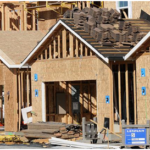Valuing Fractional Interests Article – Part 1
The Rapid Rise of Real Estate in Transition Planning:
While an enormous amount of real estate is held through partnerships and other ownership structures, future generations will struggle to preserve family legacies unless transitions provide for management and interest-holder buyouts. This places great emphasis on the importance of transition planning. Ways to accomplish this are displayed through this three part article.
Fractional interests are typically created when there are substantial benefits that can be gained. These interests are formed by investing at a premium. This may include pooling resources for purchasing and improving property or splitting the usage of a property. Asset-related transition planning is important and often overlooked by many. While selling problematic assets is typically the solution, it can be hard for partners to all agree. Clarity on the facts and circumstances is essential to foster an agreement between the parties. Webb believes it is important to become proficient at valuing fractional interests in a way that is meaningful to the clients.
To learn more click the link to the Article written by Dennis Webb, is a business and real estate appraiser, former syndicator and engineer. Webb is the principal of Primus Valuations® a specialty valuation and litigation consulting firm with offices in Los Angeles and Denver: https://www.appraisalinstitute.org/assets/1/7/Valuing_Fractional_Interests_2_0_%20_Handouts.pdf


